New Delhi: The nationwide Covid-19 lockdown has brought peace to Ratanpur, a village of 70-odd families that lies on the Gujarat-Rajasthan border. In normal times, the village serves as a hub for liquor seekers from Gujarat, a dry state, and the swarms of daily arrivals allegedly harass women — molesting them and clicking photos without permission — and create much trouble.
But the lockdown has led to the closure of all local bars, and restrictions on all inter-state travel except for essential services, and the residents of Ratanpur couldn’t be happier.
“It’s been peaceful — we haven’t been harassed by drunken outsiders. It’s a big relief,” said Panu Dama, a resident of the village.
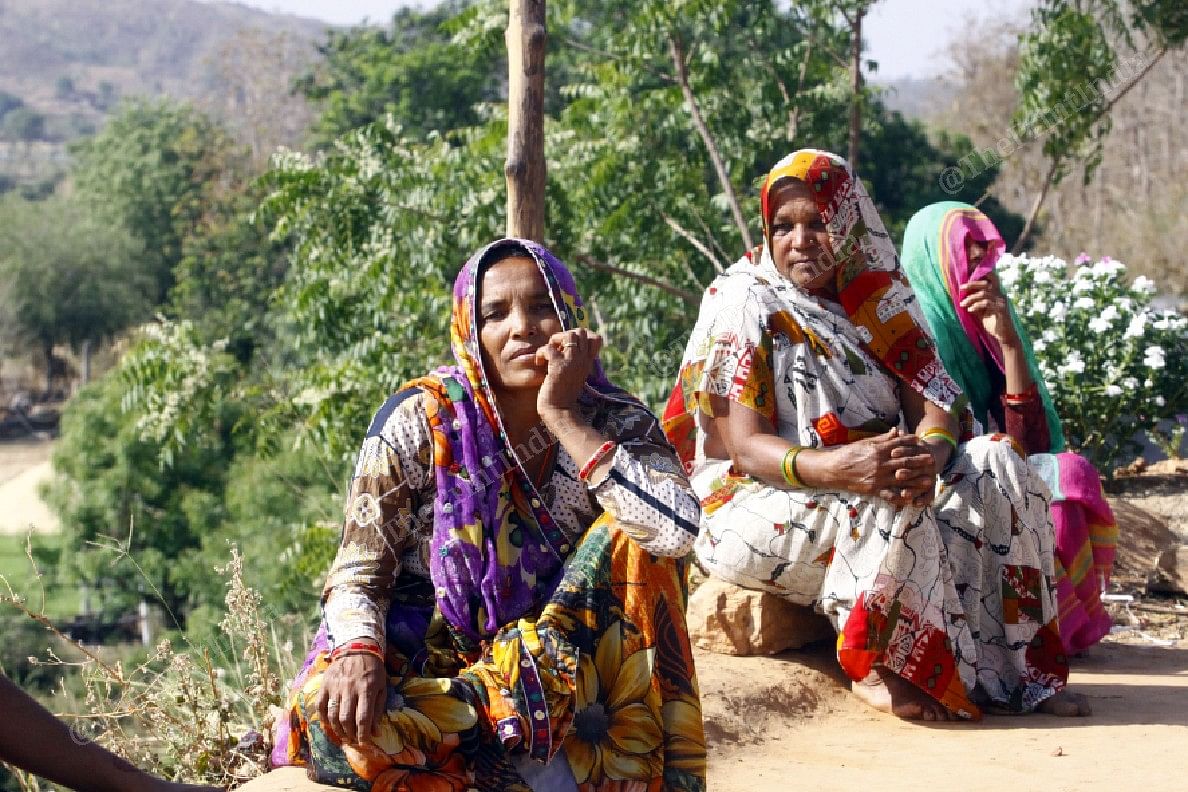
“The riverbed is dry now, but during the monsoon, the men would sometimes swim in it naked,” added Chiman Dama, who lives behind one of the bars. “They should shut these liquor shops. Our protests have fallen on deaf ears, but this lockdown has shown us what it means to live in peace, without fearing for our safety.”
Also Read: Global unrest due to Covid-19 lockdown indicates steep rise in poverty and inequality
‘No local resident involved in bars’
Gujarat has been under prohibition since before its formation in 1960, a decision meant to honour the wishes of its most famous son, Mahatma Gandhi, a staunch opponent of liquor consumption.
However, residents looking for a drink have been known to beat the ban by travelling to Gujarat’s borders with states where no such restrictions exist. This demand has spawned a string of liquor shops and bars on Gujarat’s borders, but it is a trend with few supporters in places like Ratanpur, which lies on National Highway 8 in the lap of the Aravallis.
The village is located across the Ratanpur border, which is situated approximately 125 km from the Gujarat capital Gandhinagar.
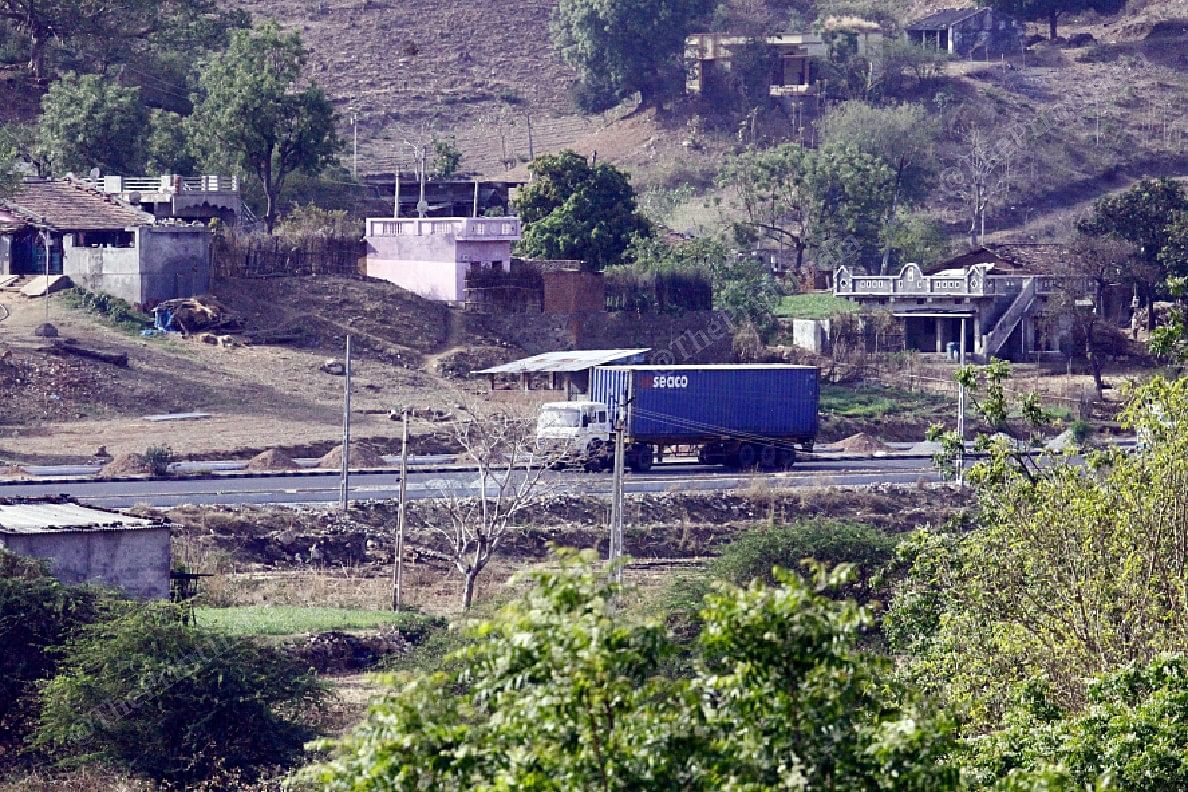
Ratanpur is a small farming village, where, according to the 2011 census, almost all residents belong to the Scheduled Tribes. The houses are located atop the Aravallis, which stretch along the highway, and the fields stand at their foothills.
Just ahead of the fields, where villagers cultivate wheat, mustard, and bajra, lie four or five bars that line the highway.
According to the villagers, before the lockdown, as many as 200 cars would come into Ratanpur from Gujarat around sunset every day, and crowds would practically be spilling out of the bars.
The proximity of the bars with their fields, villagers said, meant interaction with those visitors was inevitable.
The situation was such, they claimed, that the families felt obligated to monitor the movements of their women to make sure they were safe, only sending them out with a male escort.
“We either didn’t let them go there at all, or we stayed with them when they needed to work,” said Chiman. “Sometimes, if we intervened and asked them not to come into our villages, the crowds would get violent.”
Narmada Dama, Chiman’s neighbour, said they were used to the daily catcalling and harassment, but someone would cross the line every once in a while. This one time, she added, one of the visitors climbed all the way up to her house.
“In a drunken stupor, someone walked up the hill from the highway and came to our house, just to ogle,” she said, adding that the lockdown was a relief. “For the first time, all of this has come to a complete stop for weeks on end.”
Despite Ratanpur being a liquor hub, sarpanch Babulal Ahari Gapunjrawada said, less than 10 per cent of the village’s 350-odd residents drank alcohol, and none benefited financially from the bars.
“We have written to the MP and MLA asking for these bars to be removed. They don’t help us in any way and disrupt our work,” he added. “Everyone here relies on farming to earn a living, and no one works in the bars.”
Also Read: ‘At least Modi is feeding us’ — migrants, poor say lockdown is tough but give PM a thumbs up
A new problem
Even so, the villagers claimed the lockdown had brought another problem, a difficulty in accessing rations.
Pointing to the house adjacent to his, 61-year-old Narsingh Dama said, “That house falls in Gujarat, and they get their rations on time. We get only wheat but they’re getting everything in ample amounts.”
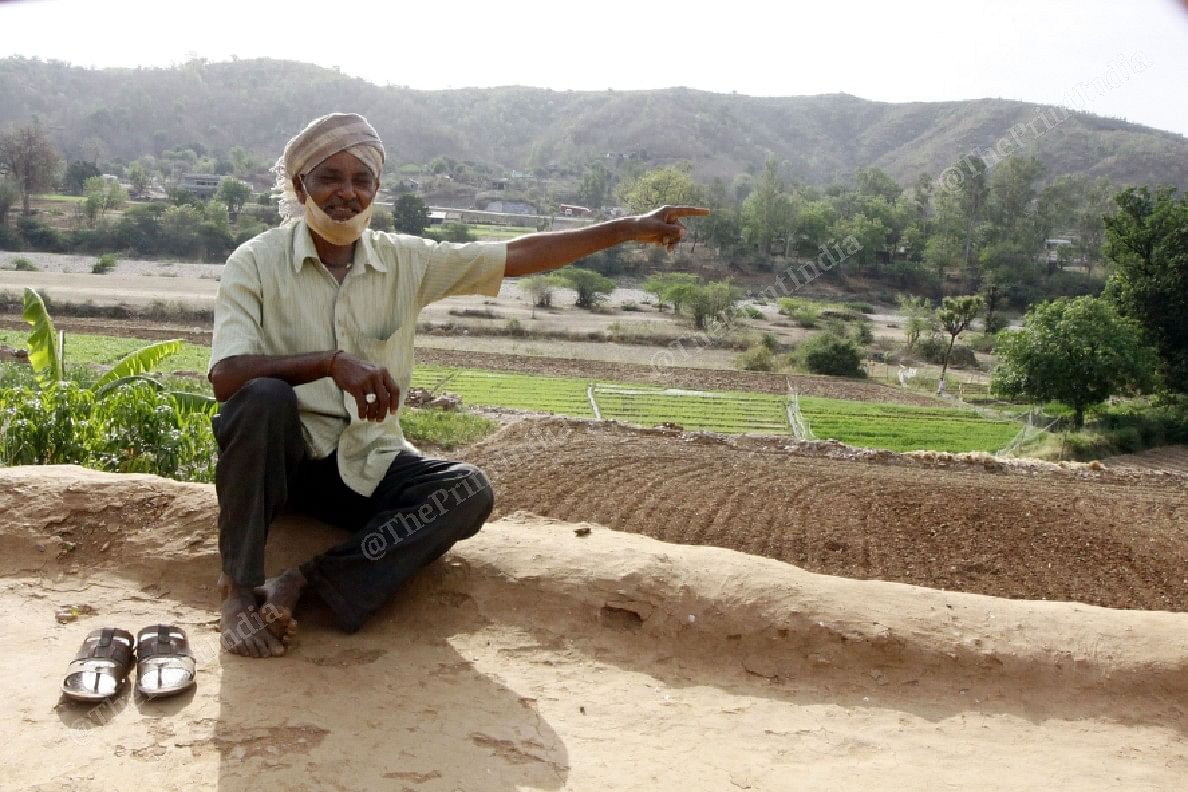
Under the National Food Security Act, targeted households in Rajasthan are entitled to 5 kg of wheat or rice per family member per month, at Rs 2 per kg. Under the Pradhan Mantri Gareeb Kalyan Yojana, the relief package announced by the Modi government in March to ease the impact of the lockdown for the country’s poor, families are entitled to a kg of dal (pulses)/month until June, but residents of Ratanpur said they were yet to receive it.
The supplies of oil, rice, and dal, among other things, had either dwindled or dried up, adding that they hadn’t received the rations for April at all.
“We’ve run out of soap. At the (fair price) shop, they’re selling dal worth Rs 50 at Rs 70, so we are not buying it,” said Narmada. “They should give us dal with the rations while the lockdown is in place, because it’s unaffordable now,” she added.
Asked about the complaints, Kana Ram, the district magistrate for Dungarpur, under which Ratnapur falls, said “all beneficiaries under the National Food Security Act have been given the rations for the month of April”.
“Those who are not beneficiaries and very needy are being given food packets. We have also set up food banks at the gram panchayat level,” he added. “The benefits under the PM Gareeb Kalyan Yojana will come in the next few days.”
The situation in Ratnapur is starkly different from that of their neighbours across the border: In Gujarat’s Pahadi village, a family said it had received 20 kg of wheat, 10 kg of rice, 1 kg of dal and 2.5 kg of sugar — all in line with Gujarat’s ration entitlements.
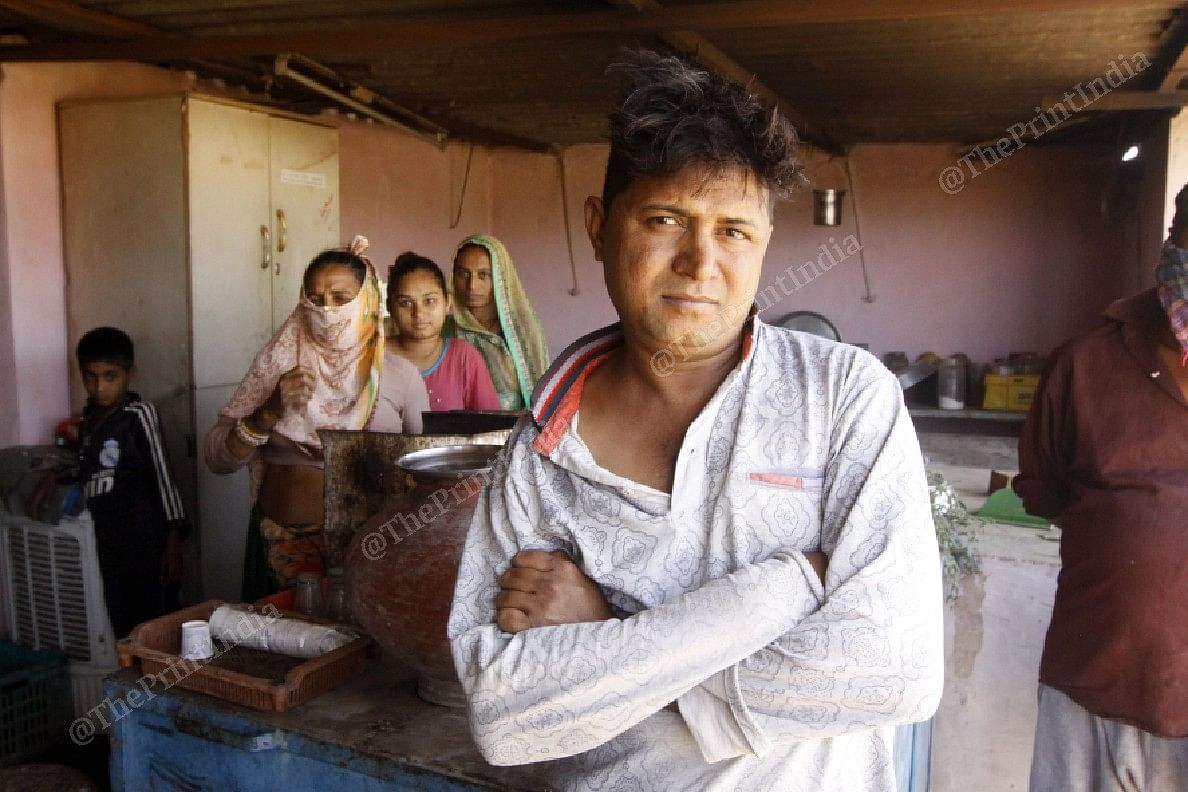
But residents here claimed to have their own set of problems. “We’ve got the entitlements, but I have to feed a family of seven,” said Khatkal Hirabhai, a resident of Pahadi. “We’ve had to stop our dhaba business… so we’re not earning any money right now. We will try to make these rations last.”
Also Read: No matter how you look at it, India’s lockdown-2 can cost as many lives as it will save


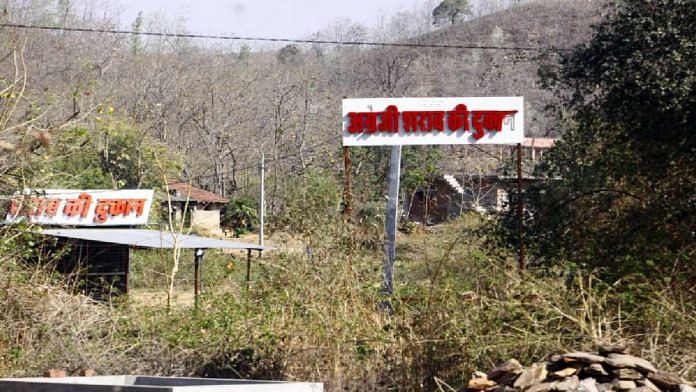

what about 100Cr liquor smuggling industry of Ratanpur border. every official gets his share.
Please Write about 100Crore Illegal Liquor Smuggling Industry of Ratanpur. Every offical and political leader gets his share from this.
Your article is thought-provoking. There is also a 100 Crore Liquor Mafia on this border. Many Government officials have monthly payments as bribes from them. Local Political Barons also channelize this money to leaders to ruling parties and their leaders. In the night Big Containers with liqour are passed through border while everyone getting their share.
Everyone Single Official from both sides of the border earns huge chunks by smuggling liqour. This is one of the most popular theka among liquor barons to get. Everyone Single Liqour Group files 100’s of forms for this particular theka.
Thanks for this article. I will keep track of your replies on this webpage.
If they want peace for ever, ask their tax hungry government to give that village to Gujarat state. thus, it wold also be a part of dry state and liquer shops will have to leave ratanpur.
ARMY